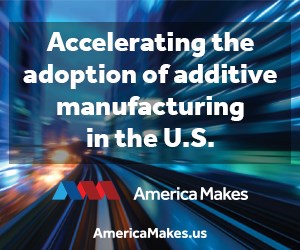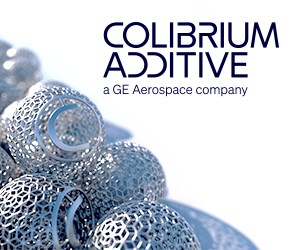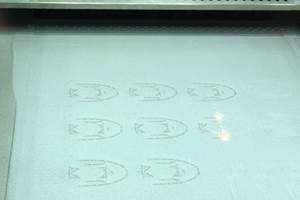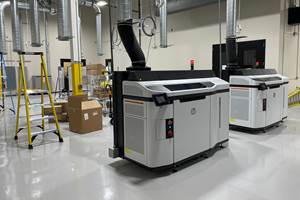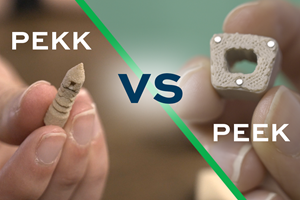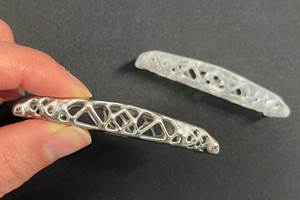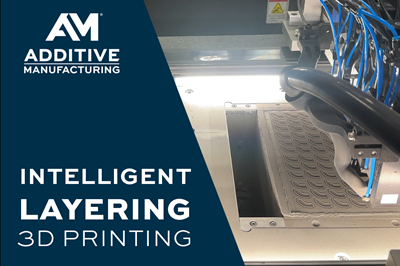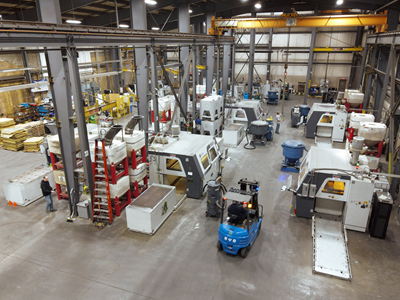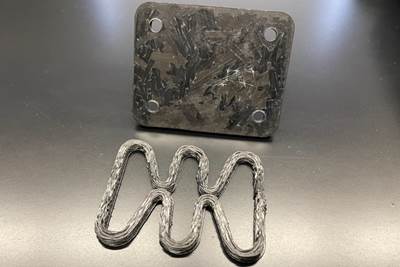Evolve Additive Solutions Partners With Alphacam to Provide STEP Parts Production in Europe
The partnership enables the distributive manufacturing of printed parts using STEP technology, thereby broadening global access to this additive process.
Evolve’s STEP process uses technology that borrows from high-speed imaging to rapidly apply layers of material. It can print parts in batches at a deposition rate up to 286 cubic inches per hour. The horizontal image at the top of the page shows a component made using STEP that would otherwise be injection molded. Photo: Evolve Additive Solutions
Evolve Additive Solutions, provider of industrial 3D printing solutions and inventor of the Selective Thermoplastic Electrophotographic Process (STEP), has developed a strategic partnership with Alphacam to offer STEP-manufactured parts as a service to customers throughout Europe.
STEP is an additive manufacturing technology (AM) that addresses the manufacturing constraints in accuracy, scalability and engineering-grade materials by other technologies in the market. Alphacam will combine its industry expertise, experience in printing plastic parts and customer relationships with its adoption of Evolve’s Scaled Volume Production (SVP) platform to produce and deliver fully dense, high-fidelity thermoplastic parts with near injection molding surface finish and properties.
This marks the second partnership of this kind introduced by Evolve as part of its mission to establish STEP production centers of excellence around the world. The company aims to increase access to STEP technology as an additive process that can deliver on the material properties, accuracy and scalability required to print end-use parts at production volumes and replace traditional manufacturing methods for more applications. The first partnership with Fathom Digital Manufacturing currently offers STEP parts in North America.
“We have experienced increasing demand for STEP parts in Europe, especially in automotive, consumer electronics, medical device and retail markets, as well as with fluid and airflow applications,” says Jeff Hanson, Evolve’s senior vice president of Go-to-Market. “Given their rich history and leadership in additive manufacturing, Alphacam is the ideal partner to bring STEP technology to European industrial sectors.”
Alphacam says it works to remain at the forefront of advanced manufacturing technologies and services. “I believe STEP technology is uniquely positioned to deliver on additive manufacturing’s quest toward production quality and scale, and we are excited to now be able to deliver this value by way of STEP parts to our customers,” says Michael Junghanss, Alphacam’s managing partner.
- Read about Evolve Additive Solutions’ enhanced portfolio with global parts service, two more materials. New parts production service and two more material offerings enable greater commercial access to Evolve’s STEP technology, which can expand application development for STEP production around the world.
- Watch this Video showing STEP 3D Printing at Fathom Manufacturing. Fathom Manufacturing's Fremont Technology Center now houses the first STEP 3D printer in commercial use. This video looks at how the platform works and use cases that the contract manufacturer is identifying.
- Check out this article which considers if additive manufacturing can compete with conventional manufacturing on cost? When it can, says Evolve Additive Solutions, the design advantages of AM find their way in. The company is beginning to ship its high-speed AM system for polymer part production.
Related Content
What is Powder Bed Fusion 3D Printing?
Whether in metal or polymer, with a laser or an electron beam, powder bed fusion (PBF) is one of the most widely used 3D printing techniques.
Read MoreWhat Does Additive Manufacturing Readiness Look Like?
The promise of distributed manufacturing is alluring, but to get there AM first needs to master scale production. GKN Additive’s Michigan facility illustrates what the journey might look like.
Read MoreUnderstanding PEKK and PEEK for 3D Printing: The Cool Parts Show Bonus
Both materials offer properties desirable for medical implants, among other applications. In this bonus episode, hear more from Oxford Performance Materials and Curiteva about how these companies are applying PEKK and PEEK, respectively.
Read MorePossibilities From Electroplating 3D Printed Plastic Parts
Adding layers of nickel or copper to 3D printed polymer can impart desired properties such as electrical conductivity, EMI shielding, abrasion resistance and improved strength — approaching and even exceeding 3D printed metal, according to RePliForm.
Read MoreRead Next
Video: Intelligent Layering Metal 3D Printing at 3DEO
Contract manufacturer 3DEO delivers metal parts using Intelligent Layering, a binder jetting-like 3D printing process the company developed and operates internally. Here’s how it works.
Read MoreLooking to Secure the Supply Chain for Castings? Don't Overlook 3D Printed Sand Cores and Molds
Concerns about casting lead times and costs have many OEMs looking to 3D print parts directly in metal. But don’t overlook the advantages of 3D printed sand cores and molds applied for conventional metal casting, says Humtown leader.
Read MoreTo Improve Performance of Compression Molded Composites, Add 3D Printed Preforms
9T Labs' Additive Fusion Technology enables the manufacture of composite structures with as much or as little reinforcement as is necessary, using 3D printed continuous fiber preforms to add strength just where needed.
Read More

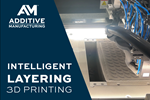
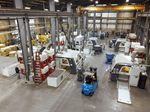
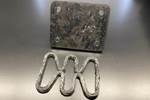
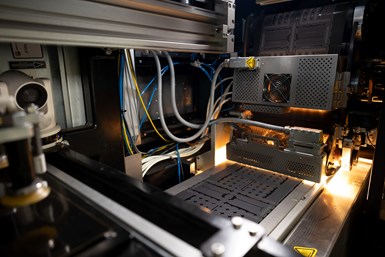




.png;maxWidth=300;quality=90)



